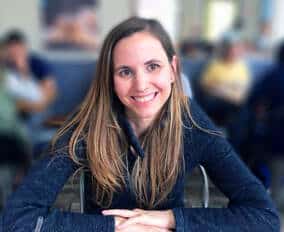
Assistant Professor Jessica Whited
Department of Stem Cell and Regenerative Biology, Harvard University
- 10:00
- Zoom details to be circulated via email on seminar day,
- Associate Professor Edwina McGlinn
Connecting body-wide cellular responses to amputation to the initiation of limb regeneration
Abstract
Molecular and cellular responses to amputation that underlie regenerative prowess in species such as axolotl have mostly been studied at the site of injury. Our work has revealed that cells throughout the body are also stimulated to enter a proliferative state following axolotl limb amputation. This talk will address the mechanisms whereby cells are stimulated to enter this activated proliferative state as well as the consequences of this activation. We will discuss how these findings force a re-evaluation of early injury responses that poise cells to contribute to complex tissue regeneration. The work will argue that limb regeneration may proceed via a two-step mechanism—body-wide cell activation followed by conversion to blastema state at the injury site. This framework has implications for both the evolution of regeneration and for regenerative medicine applications in the future.
Bio
Jessica Whited holds a BA in Philosophy and a BS in Biological Sciences. Her PhD work at MIT focused on understanding how central nervous system architecture develops, and is maintained, in Drosophila. As a postdoc at Harvard Medical School, Jessica shifted toward investigating how complex body parts can be replaced, and she established a breeding colony of axolotls to address this question in limb regeneration. Jessica established her independent lab at Brigham and Women’s Hospital/Harvard Medical School in Boston. She is currently Assistant Professor at Harvard University in the Department of Stem Cell and Regenerative Biology in Cambridge, Massachusetts, USA. Her lab’s work is mostly focused on understanding how blastemas are built in hopes that this information will provide a theoretical framework for inspiring future therapeutic approaches in regenerative medicine.
